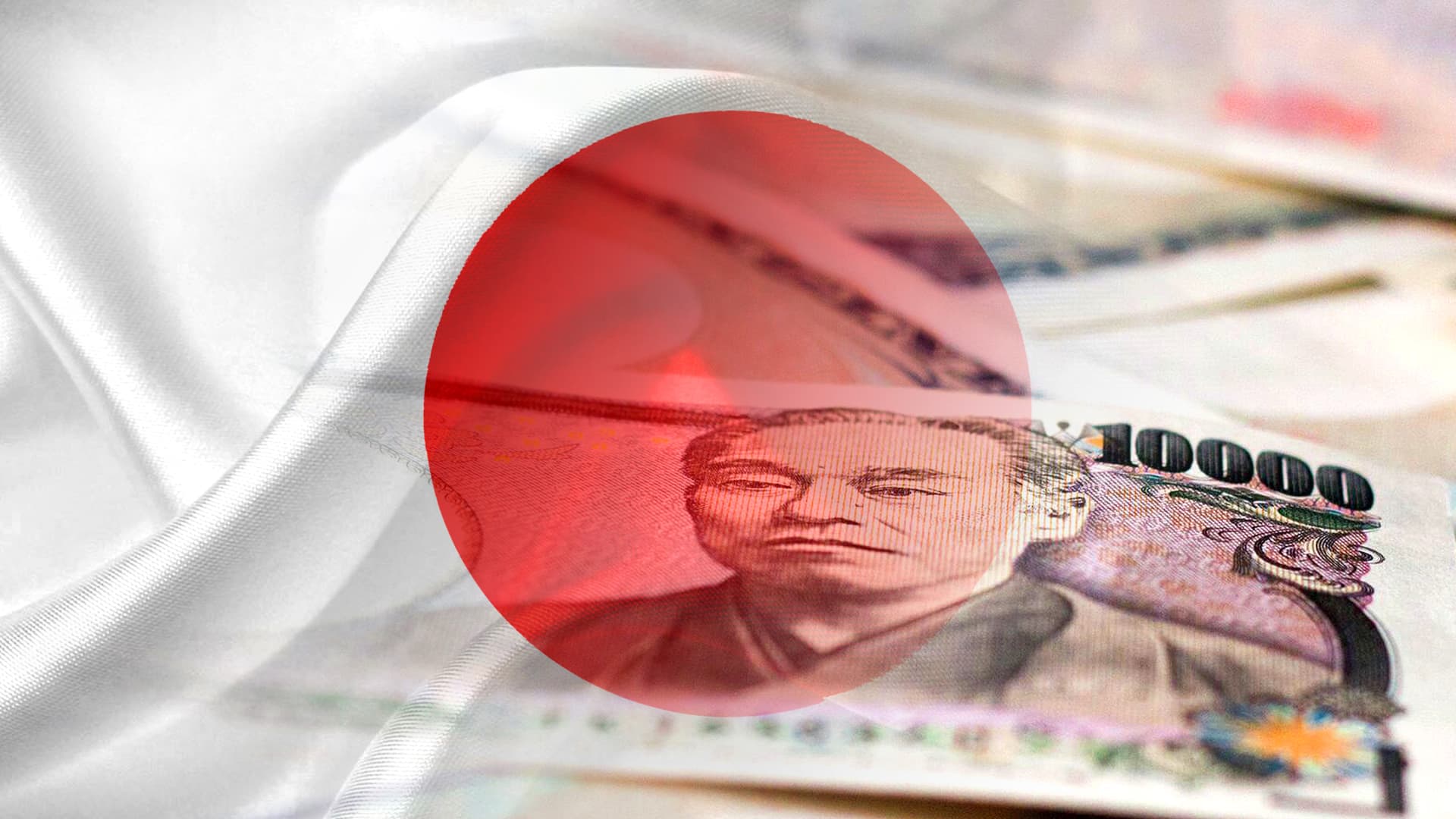An editorial montage of the Japan flag and Japanese yen cash bank notes.
Javier Ghersi | Moment | Getty Images
Japan’s central bank kicks off its July monetary policy meeting on Tuesday, with traders focused on its decision on interest rate and government bond purchases.
The Bank of Japan is expected to raise its benchmark interest rate and trim buying Japanese government bonds, the quantum of both actions is not clear.
Economists polled by Reuters expect the BOJ to increase its benchmark interest rate to 0.1% from the current range of 0% to 0.1%. Other experts expect much higher hikes from the BOJ.
Analysts from ING in a note last week forecast rates could be hiked to 0.15%, while Bank of America expects the rates could go as high as 0.25%.
‘Virtuous cycle’
BOJ Governor Kazuo Ueda said in June that the central bank could raise rates “depending on economic, price and financial data and information available at the time,” Reuters reported.
“Our decision on bond-buying taper and interest rate hikes are two different things,” Ueda told the country’s parliament.
Currently, Japan’s headline inflation stands at 2.8% for June, unchanged from May, while core inflation, which strips out prices of fresh food, accelerated to 2.6%, from 2.5%. The headline inflation rate has been above the BOJ’s 2% target for more than two years.
The so-called “core-core” inflation rate, which strips out prices of fresh food and energy and is the BOJ’s key metric for price increases, rose to 2.2% from 2.1%.
While inflation has been meeting and even overshooting the BOJ’s target rate, the central bank has been focused on confirming a “virtuous cycle” of higher wages boosting prices.
The latest wage negotiations between workers’ unions and companies have brought that virtuous cycle closer to realty following sharp increments, allowing the Bank of Japan to raise interest rates and normalize its monetary policy.
The Japanese Trade Union Confederation, commonly known as Rengo, said on July 3 that big firms with 300 or more union-backed employees had raised wages by 5.19%, while small firms had increased pay by 4.45%. This marked the largest wage hike in 33 years, the union said.
Bond taper
The current meeting will also be watched for the BOJ’s plan on how it will taper its bond buying program, as the bank said in June, it will reduce its purchase amount of JGBs “to ensure that long-term interest rates would be formed more freely in financial markets.”
The bank currently buys up about $6 trillion yen ($39 billion) of JGBs per month, according to its March release, and the BOJ’s JGB holdings currently stand at a whopping 579 trillion yen as of July 19, according to CNBC’s calculations.
Reuters, citing unnamed sources, reported that “the BOJ is likely to taper its bond purchases gradually in several stages at a pace roughly in line with dominant market views, to avoid causing an unwelcome spike in yields.”



















;Resize=(1180))

Discussion about this post